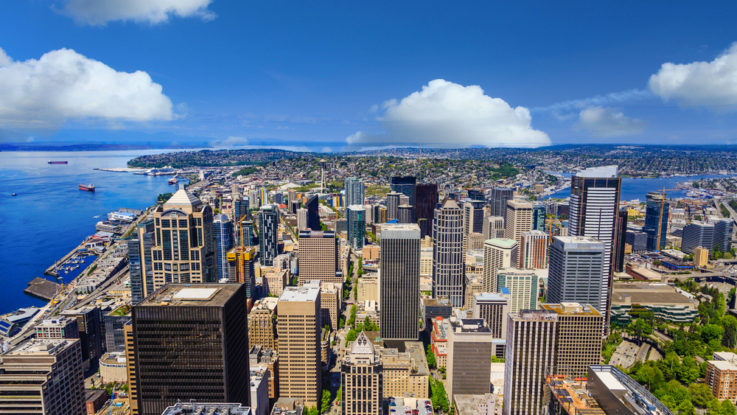
The city of Seattle, WA has enacted an updated building energy code as part of its effort to find ways to reduce the city’s greenhouse gas pollution. The city has the target of being carbon neutral by 2050, which will require dramatically lowering greenhouse gas emissions. A 2018 study of those emissions found that buildings accounted for nearly a quarter of this pollution, and that commercial buildings generated more than half of these emissions. Without the code changes, Seattle authorities projected that the building emissions would have been 12% higher by 2050.
Jessica Finn Coven, director of Seattle Office of Sustainability & Environment, called the study a “sobering wake-up call for us. We continue to be far away from our goals and have started trending in the wrong direction.”
The updated code applies to new commercial and large multi-family buildings. It bans the installation of natural gas for space heating in these new buildings, or for use in replacement heating systems in older buildings. It also prohibits the use of natural gas to heat water in new hotels and large apartment buildings, along with other steps such as a greater use of more efficient electric heating and cooling systems. Commercial buildings and apartments may be constructed with natural gas for cooking, but electrical outlets would be required near stoves so that electric stoves could be installed later.
The city is receiving support from the Bloomberg Philanthropies American Cities Climate Challenge as it adopts the updates.
“Seattle’s energy code is not only among the strongest in the nation, it prioritizes protecting the health of our most impacted populations and is a critical mechanism to support our City’s transition to a clean energy future,” Mayor Jenny Durkan wrote in a statement.